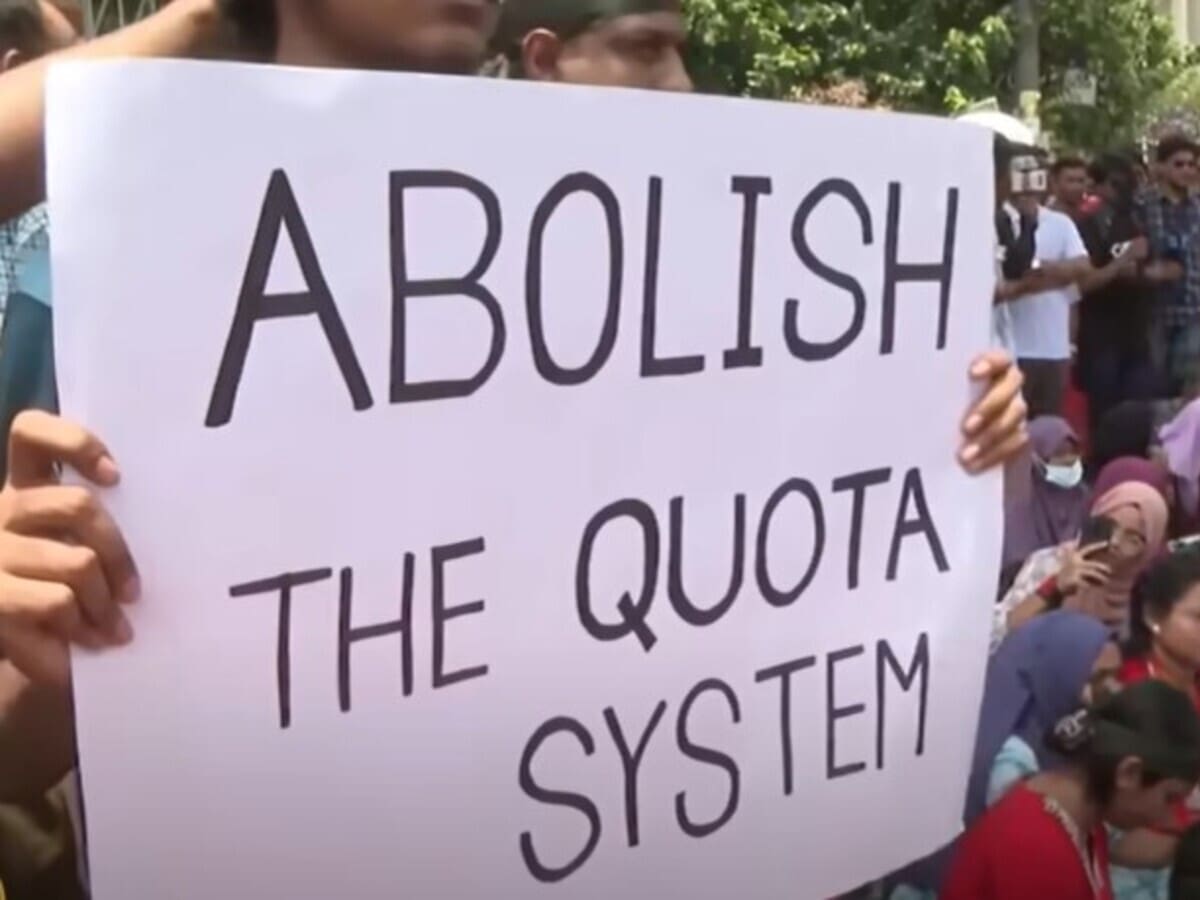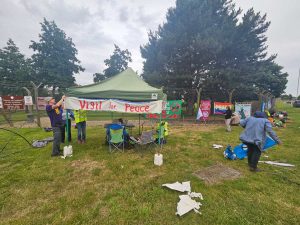In Bangladesh, university students are protesting the job quota system for public service, calling it outdated and discriminatory. The Awami League government originally established the system after 1972 to help disadvantaged groups. Now, it faces criticism for favouring individuals with political connections, rather than merit. This has caused frustration among young people, who feel their job opportunities are being unfairly limited.
Bangladesh protests: police violence
Demonstrations began on 1 July 2024, where tens of thousands of students across the country took to the streets. This soon turned into an outburst of violence against the police. Around 174 people have been killed in the clashes, including several police officers. The authorities imposed a curfew and cut mobile and internet services.
They have deployed security forces to control the unrest, but human rights groups accuse them of using excessive force against protesters. Footage from redstreamnet on X shows police vehicles running over pedestrians with ultimately life-threatening consequences.
Due to the high death toll and bloodshed, on 22 July the students called off protests for 48 hours. Nahid Islam, the leader of the main protest organiser Students Against Discrimination, spoke to the news agency AFP:
We started this movement to reform the quota. But we did not want quota reform at the expense of so much blood, so much killing, so much damage to life and property.
The protests present the biggest challenge to prime minister Sheikh Hasina after the main opposition boycotted a controversial election. Hasina has urged patience while the Supreme Court reviews the case. However, she faces criticism for allegedly inciting anger by calling protesters “razakar” a term for collaborators during the 1971 independence war.
Bangladesh’s history of the quota system
Since Bangladesh gained independence in 1971, the government established the quota system to address historical injustices. The government reserves a significant portion of government jobs for specific groups, including freedom fighters’ descendants, women, and ethnic minorities. While these quotas aim to promote inclusivity and support marginalised groups, students argue that the system is now outdated and skewed in favour of supporters of the ruling Awami League party.
After the 1947 partition, Pakistan established quota provisions for public service recruitment. The Central Superior Services (CSS) initially reserved only 20% of recruitment for merit positions and allocated the remaining 80% to different provinces. In September 1972, Bangladesh amended and introduced the quota system for the new Bangladesh Civil Service (BCS) to meet the needs of the newly independent nation. Until 1985, candidates largely ignored the quota for war-affected women. In response, the government amended the quota system. They reserved 10% of jobs for all women, kept the 30% quota for freedom fighters, and lowered the district-based quota to 10%.
In order to reserve 45% of public jobs for merit-based candidates, the government established a quota of 5% for Indigenous communities. It expanded the quota of freedom fighters to include their children in 1997, and their grandchildren in 2010.
The students view it as an “elitist labor market” raising concerns that it could lead to a slippery slope.
In 2012, the Bangladesh Public Service Commission increased the percentage of reserved jobs to 56% by adding a 1% quota for disabled people. In 2018, the government abolished the first and second-class job quota system in response to protests. However, on 5 June, the High Court ruled this cancellation as unlawful and the government has appealed the decision.
Why is it the students who demand a reform?
University graduates in Bangladesh face higher unemployment rates compared to their less-educated peers. Despite the high educational attainment of graduates, they struggle to find employment due to the quota system, which they view as limiting their chances in favour of quota beneficiaries.
2018 saw the reservation of 56% of government jobs due to the quotas, sparking frustration among students facing high youth unemployment. Nearly 32 million young people are either out of work or education in a population of 170 million. The economy, which was once among the world’s fastest growing, has now deteriorated. Inflation hovers around 10%, and the country’s dollar reserves are shrinking.
It weakens their hard-earned qualifications which have taken years of their lives to achieve.
They are society’s next generation but feel that the system has failed them and their life aspirations. It is clear that in today’s socioeconomic realities, these young people feel the need to fight and risk their lives to defend their basic right to employment.
The Awami League respond…
Awami League general secretary and minister Obaidul Quader has urged students to stay vigilant against conspiracies and manipulative efforts by vested interests against the quota system.
However, Dr Luthfa told the BBC that corruption persists among those close to the ruling party without punishment, including allegations against Hasina’s former top officials. In addition the shrinking democratic space due to a lack of credible elections over the past 15 years does not make them look better.
Bangladesh: what comes next?
In a press briefing, law minister Anisul Huq said:
The court scrapped the circular that abolished the quota system. The government has appealed against that decision. Creating public suffering by blocking roads should be avoided until the court delivers its verdict.
The action of appealing the court’s ruling emphasises how divisive the matter is. The quota system’s inability to adjust to the socioeconomic realities of today, reasonably frustrates students. Of course, this includes frustrations over rising youth unemployment and the deteriorating economy. Their demonstrations call for a fairer and merit-based labour market that takes into account their qualifications.
But in an effort to preserve peace, the prime minister has responded by advising citizens to “wait with patience” for the High Court ruling. However, this has only exacerbated tensions by downplaying the seriousness of the students’ complaints.
Protests have also seemingly gone beyond the initial cause, and erupted into something far darker. As Al Jazeera reported:
A student talks of a body lying on the empty flyover being dragged off by the police. A friend talks of an unmarked car spraying bullets at the crowd as it speeds past. She was lucky. The shooter was firing from a window on the other side. A mother grieves over her three-year-old senselessly killed.
The government implemented curfews and shoot-on-sight orders. Armoured personnel carriers patrolled the streets. Equally in violent retaliation, reports include police lynchings and arson as the nation’s anger boils over.
It is imperative that the government addresses these challenges and strike a balance between the legal and social aspects. If these issues are not resolved, it will be more than the students participating in the uproar.
Featured image via Youtube – Al Jazeera




